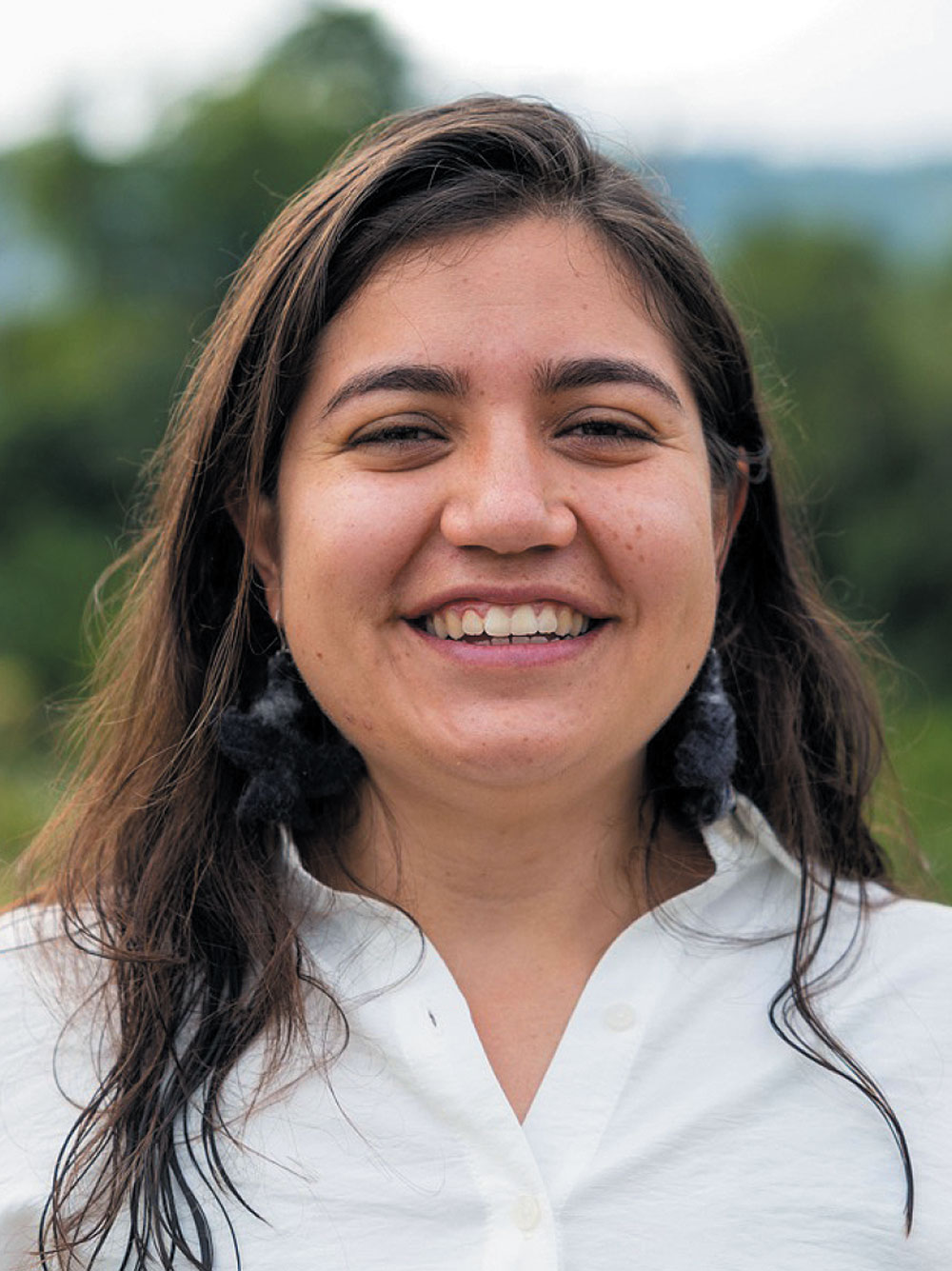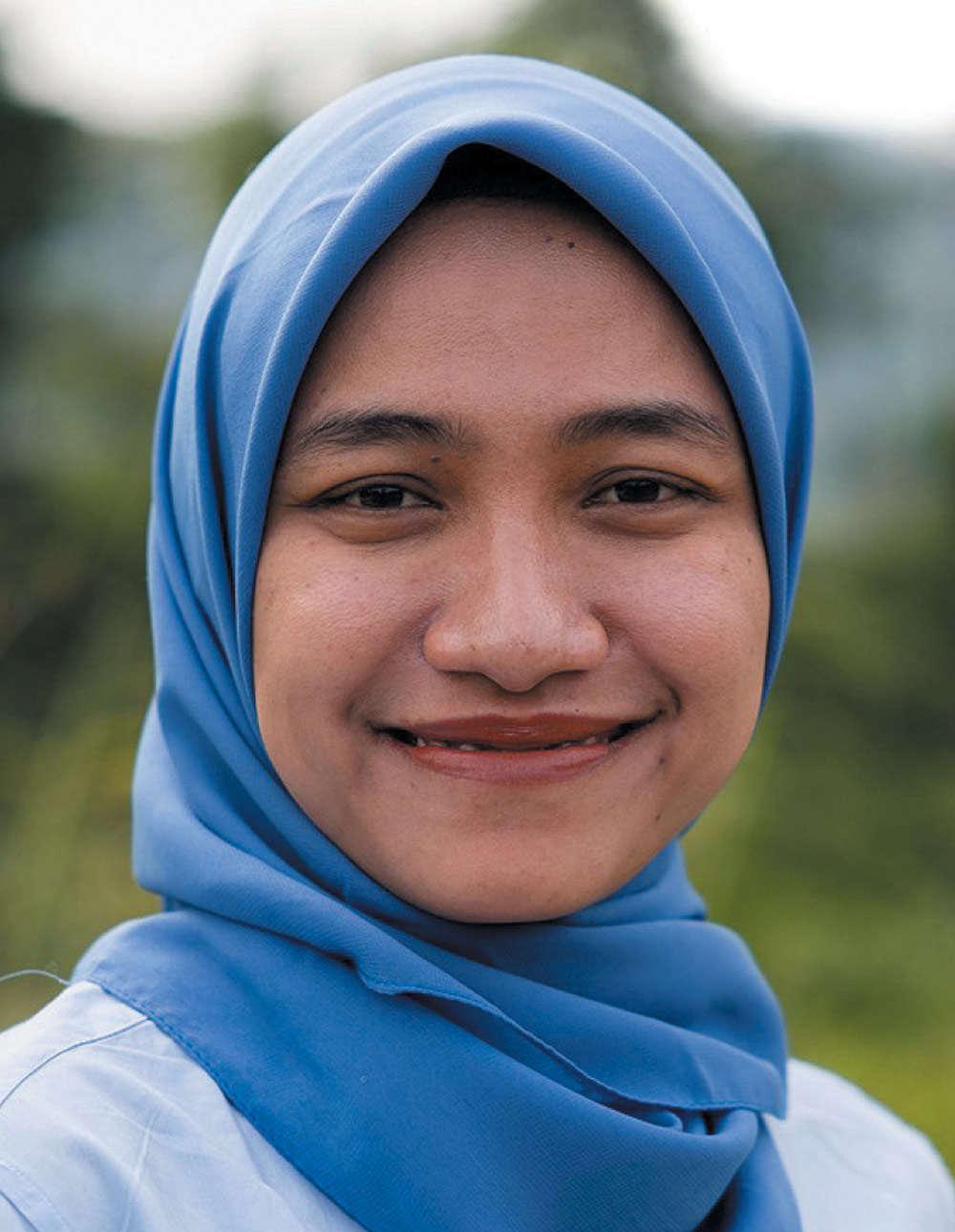Collaboration for Conservation


n an April day in Chinchiná, Colombia, a group of bat conservationists put their acting skills to the test. Pretending to be an audience of schoolchildren, their roleplay helped Indonesian bat researcher Ellena Yusti refine a short improvised “elevator speech” explaining her work to a younger audience. Since bat conservationists must be able to communicate with everyone from kids to government officials to the general public, the exercise was a valuable chance to practice her skills in front of supportive colleagues. This was one of many memorable experiences during the inaugural workshop for the exciting new MENTOR-Bat program, a partnership between Bat Conservation International (BCI) and the U.S. Fish and Wildlife Service (USFWS).
Designed to promote long-term protection for bats and ecosystems by building capacity in key geographic regions, MENTOR-Bat brings together established and emerging bat conservationists from Colombia, Cameroon, and Indonesia in three cohorts, each consisting of one mentor and three fellows. Over 18 months, participants engage in virtual and in-person meetings, training opportunities, and workshops related to bat conservation and implementing bat conservation projects. The program also emphasizes One Health, focusing on protecting people and bats.
Colombia workshop unites global experts
“This program gives me an opportunity to be a mentor not just for ecologists or for researchers in my area,” says Cameroon Mentor Patrick Jules Atagana. “We have a virologist and a veterinarian in our cohort, so this training is giving me the opportunity to assist a transdisciplinary team working together to save bats and improve human health.”
BCI and USFWS selected the three participating nations based on criteria that included the number of bat species present, how many are threatened, the level of in-country infrastructure available to implement field-based projects, and the potential to increase technical and research capacity for biodiversity conservation.


Meet the Fellows
Peña Bello also hopes to gain new skills in handling the social components of conservation and learning different perspectives on how to approach similar issues affecting bats in three distinct geographic regions. “Getting to know other bat conservationists from around the world is an incredible opportunity to know their perspective and to get to know their culture,” she says. In addition to cultural exchange, she looks forward to sharing ideas and strategies so the three cohorts can help each other. Ellena Yusti, a fellow from Indonesia, investigates the ecological and socioeconomic impacts of rainforest transformation in Sumatra. She is excited about collaborating with other fellows, mentors, and staff from Bat Conservation International (BCI) and USFWS.
“I think our regions are facing the same threats, like habitat loss, such as bat roosting sites or foraging sites in the forest, mangroves and caves converted into oil palm plantations, large-scale aquaculture and the mining industry, for example,” she says. “It’s important to address these threats and identify possible solutions as a team.” She adds that expanding her personal network for future communication and collaboration will make it easier to address common problems and design effective conservation projects.
One Health approach defined
A particularly exciting aspect of MENTOR-Bat is its emphasis on One Health, which the World Health Organization and other international bodies define as “an integrated, unifying approach that aims to sustainably balance and optimize the health of people, animals, and ecosystems.”

The MENTOR Model
Since the first program in 2008, USFWS has supported eight additional MENTOR programs, mostly in Africa, focusing on issues such as forests and conservation of wildlife such as apes, pangolins, manatees, fish, and now bats with MENTOR-Bat. A tenth program, focusing on wildlife trafficking, is also planned.
As an important element of these efforts, Yusti is eager to further develop her science communication skills to motivate policymakers and local governments to address critical issues.
“This program will increase my capacity to implement the One Health approach and holistic conservation measures,” Yusti says. “Here in Indonesia, people are more focused on charismatic species like tigers, but the bats are important because they are facing habitat loss and hunting for bushmeat. That’s a big problem in Indonesia, and it’s not an easy problem to solve.” She hopes the MENTOR-Bat team can offer fresh ideas to address these problems.
Continuing to convene for bat conservation
Atagana, one of the participants who was unable to travel to Colombia in April, looks forward to meeting the other cohorts in person. He is excited to learn from the other participants about their experiences addressing different issues and see if similar solutions can be implemented in Cameroon for other species.
This global exchange of knowledge and networking excites de Wit, who is thrilled with the success of the inaugural event. “They are such a great team,” she says of the participants. “Their shared goals—to protect bats and ensure that bats and people can coexist sustainably—have brought them together. I am excited to see what projects they develop and what they do next for bat conservation.”